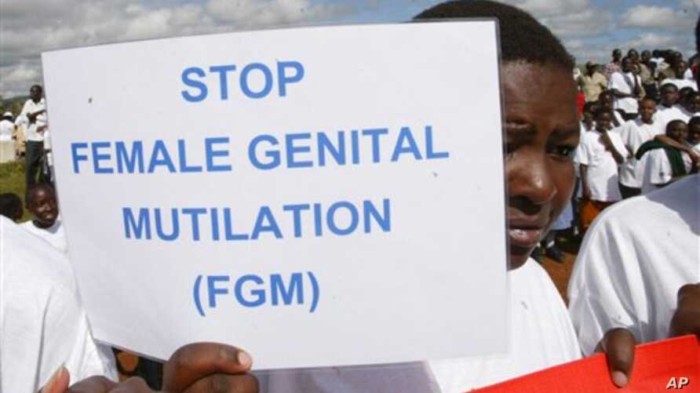By Our Reporter
Kenya and Uganda have signed a landmark agreement to end cross border female genital mutilation (FGM) between the two countries.
The signing ceremony took place during cerebrations to mark International Day of Zero Tolerance for FGM at Alale, West-Pokot County last Saturday.
The ceremony was led by Public Service and Gender Chief Administrative Secretary (CAS) Rachel Shebesh and her counterparts from Uganda.
Ms Shebesh noted that women and girls have borne the brunt of the harmful consequences of FGM for a long time adding its elimination was long overdue.
She observed that involving the elders is a prerequisite in the fight against the outlawed practise given the significant role they play as the gatekeepers of the culture in their respective communities.
“The elders are there to protect our women and girls from the harmful practices such as FGM. Their voice is the most respected in the society and so they can influence the community to choose a safer rite of passage for girls,” she said.
The CAS added the government, development partners and the neighbouring countries will be at hand to accord the elders the required support.
She emphasised that the government is not fighting cultural practices but targets harmful practices that infringe on the rights and wellbeing of girls and women.
Source of livelihood
“The practitioners of female circumcision still carrying out the illegal practice as a source of livelihood should seek alternative means of income through the available government affirmative funds,” she added.
The Ugandan government delegation called for increased allocation for education budget for the border counties, which practice FGM to empower girls’ through education.
West Pokot Governor John Lonyangapou urged parents to ensure their children are in school, saying his administration has given allocation for education which is enough for every child in the county.
Kenya has witnessed a growing trend in cross-border FGM where girls and women are taken to Uganda, Tanzania, Ethiopia and Somalia for the cut, as perpetrators attempt to circumvent the laws and systems that have been put in place to end the vice.
Findings from a report commissioned by Unicef in collaboration with Kenya’s Anti-FGM Board, shows that 70 per cent of those interviewed in the survey from Uganda, and 60 per cent from Ethiopia travel to Kenya for FGM.
The agreement between Kenya and Uganda comes after the East African Countries (EAC) countries in April 2019, signed another declaration to eliminate cross-border FGM.
Public and Gender Cabinet Secretary Prof. Margaret Kobia led her counterparts from Eastern Africa in an inter-ministerial meeting on ending cross border FGM during a two-day conference in Mombasa. It brought together anti-FGM crusaders and experts from Somalia, Ethiopia, Uganda, Tanzania and Kenya who discussed how to tackle cross-border FGM
If you would like your article/opinion to be published on Uganda’s most authoritative news platform, send your submission on: [email protected]. You can also follow DailyExpress on WhatsApp and on Twitter (X) for realtime updates.



